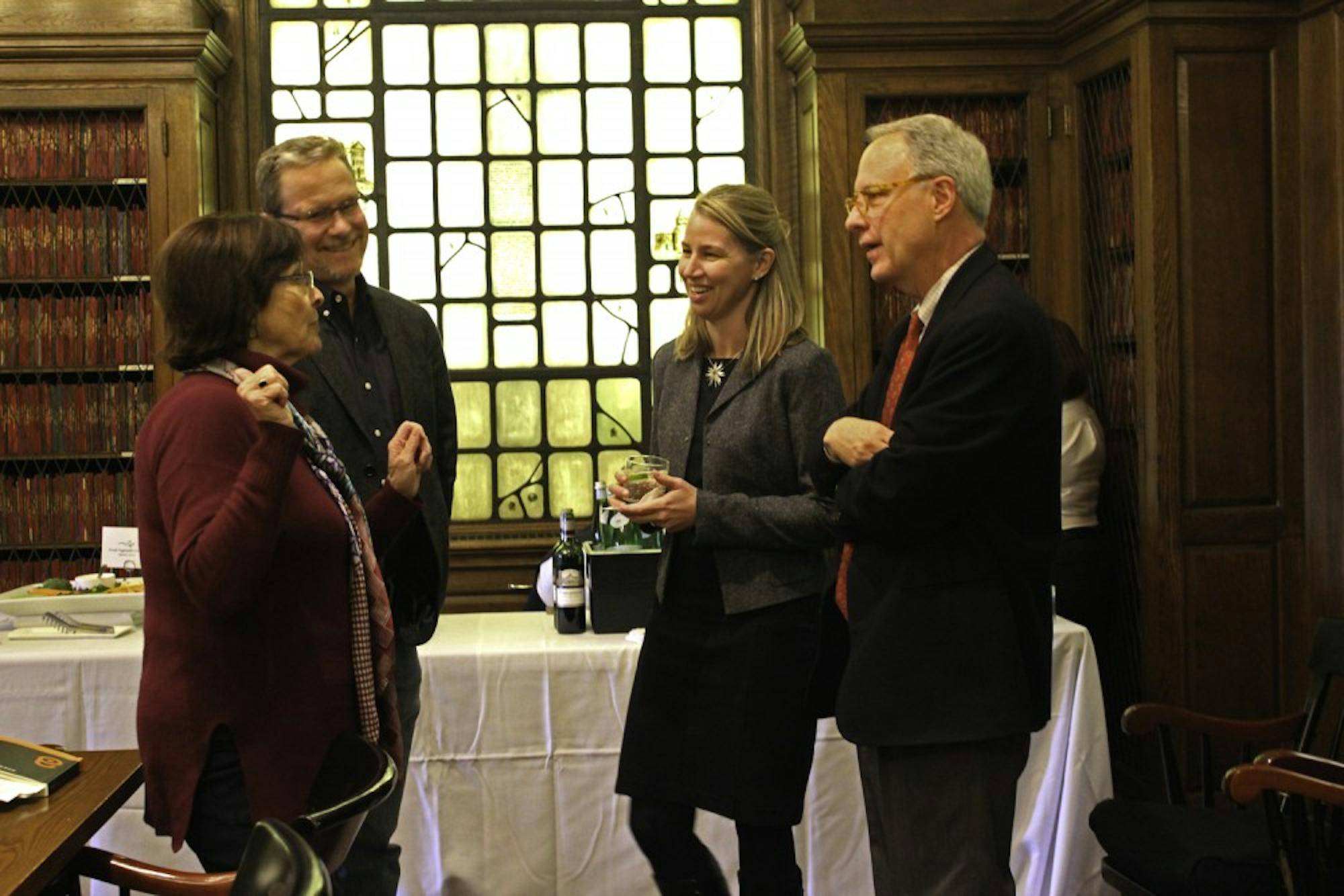Faculty members met over wine and cheese Monday afternoon to discuss a proposal to make the final pre-published version of faculty-authored scholarly articles available through a public digital repository. This open-access policy mirrors those of around 170 other universities, including Harvard University and the Massachusetts Institute of Technology.
The trend toward open access follows a rising cost of journal subscriptions, which restricts the availability of scholarly work for many outside academia. The conversation was further sparked by the January 2013 death of pro-open access activist Aaron Swartz, who committed suicide after facing prosecution for his illegal downloading of JSTOR archives.
The open-access policy would not require faculty to publish in open-access journals, nor would it take away their personal copyright. Faculty could also request an embargo or a waiver to opt out of the policy, based on the requirements of the publishing journal.
An upcoming Monday meeting of the arts and sciences faculty will address the topic. Information resources associate librarian Elizabeth Kirk said in an interview that the resolution has so far encountered little to no “philosophical pushback,” noting that she had only received logistical questions.
“Absolutely, this is about impact for faculty scholarship, and it’s also a preservation of faculty scholarship,” Kirk said, adding that such a policy would offer many people outside of higher education access to cutting-edge research.
At yesterday’s forum, dean of libraries Jeffrey Horrell emphasized his desire to make open access as simple and understandable as possible.
“This is not telling anyone to publish in any way,” he said, reiterating that faculty can opt out of the policy.
Possibly moving toward open access is not surprising or controversial, said vice provost for academic initiatives Denise Anthony. She cited the National Institutes of Health as one grant-giving organization that incorporates such a policy.
Economics professor Erzo Luttmer, however, expressed some reservations toward the policy, particularly the potential waiver system. Luttmer added that his co-author at Harvard “hates the system.”
Barbara DeFelice, director of digital resources and scholarly communication, said in an interview that she envisions the policy’s implementation being extremely simple, perhaps existing through a simple web form. She said that the Provost will waive all opt-out requests.
Several problems can arise without an open-access policy, Kirk said. The College does not have copies of all faculty scholarship, she said, and as a librarian, Kirk said she has seen numerous publishing companies and journals cease to exist after several years of operation. This can pose problems when libraries stop collecting the print editions of such journals.
Part of the resolution’s goal, Kirk said, is to make sure that Dartmouth becomes a long-term repository of its own faculty’s scholarship. She said the fact that faculty members will automatically be opted into the policy allows the College to cast “as broad a net as possible” and ensure adequate scholastic representation.
Library administration and staff representatives stressed that many publishers comply with open-access policies, and that there is momentum toward more institutions creating similar policies. In recognition of this movement, the College celebrated Open Access Week from Oct. 20 through 24.
They also reiterated their goal of creating a streamlined process so that faculty would not need to worry about logistics.
“The procedures will be built on faculty input,” Kirk said. “We guess that what will make it successful is that faculty won’t have to do any heavy lifting by themselves.”
At the event, Asian and Middle Eastern languages and literature chair Jim Dorsey questioned whether an open-access policy could undermine academic journals by rendering them largely obsolete.
Anthony responded by noting that journals, unlike a vast repository, curate and publish related articles.
Kirk said that under the open-access resolution, the library would create metadata for the College’s scholarship that would make articles accessible via search engines like Google. She said the policy makes sense with articles, rather than books, because journals do not pay their authors.
According to the resolution’s frequently asked questions page, there have been no legal challenges to open access policies so far.
The Council on Libraries drafted and approved the initial faculty open access resolution in 2012, and Thayer Engineering School adopted it last year.
Dartmouth signed the Compact on Open Access Publishing Equity in 2009, and currently provides authors up to $3,000 per year to publish in reputable open-access journals.




